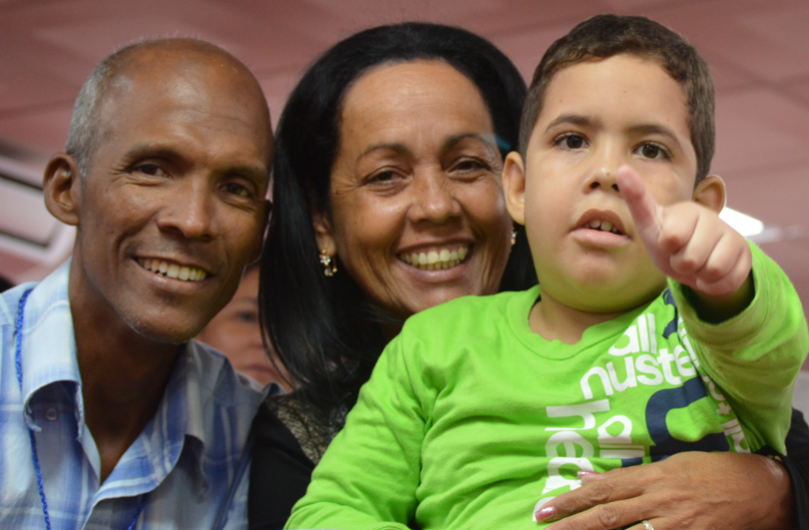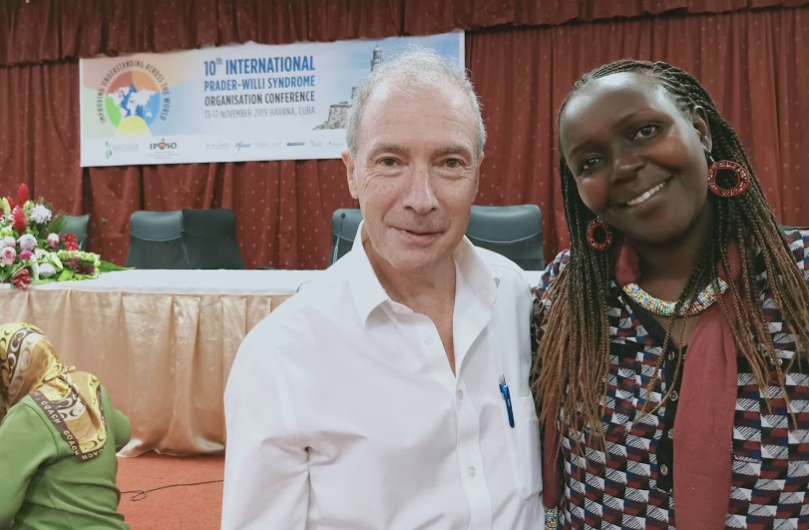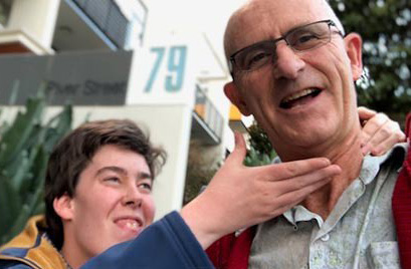I Want the Same
How do you answer your person with PWS, who asks why they can’t have “the same” or do “the same” as other people?
The “same” includes many more things than just food. People with PWS want to travel independently as do other adolescents and adults. Once someone with PWS learns how to reach a destination they can usually repeat the journey alone, without getting lost and are, consequently, considered to be good at “travel training” – so what’s the problem? They want to have their own money to buy the things they like. They want to go out with friends, to the movies or to restaurants and of course, they want to eat the food they see advertised as being fun, good for you or healthy, just as other people do. Some people with PWS want to learn to drive, get married and have babies, just like other adults.
Achieving the highest of potentials is important for everyone, including people with PWS, so how do family members encourage and support their adult child to reach for “appropriate” goals? Parents and carers may think ‘Who are we to determine what is an “appropriate” achievement for another person?’” It all comes down to recognising the interests and abilities of the person with PWS and then considering what is possible for that person, while taking into account the characteristics of PWS. Remembering that people with PWS have cognitive limitations reinforces the need for boundaries in everything they do. Just as boundaries keep children safe, they also provide protective freedom, for both physical and mental health, in people with PWS of all ages. A person with PWS with only a mild intellectual disability still only has the emotional level of a young child, which may be part of why temper tantrums occur readily in children and adults alike. On the other hand, families may believe their adult child is perfectly capable of accomplishing goals such as independent travel, shopping, going to the movies, visiting friends and more, and in practise this may be true. However, it would be failing that person with PWS if the family did not recognise the areas of potential failure and “stranger danger” – the late arrival of a bus or train; a conversation started with a stranger that could lead to danger; the temptation of asking for food, money or cigarettes; or just becoming a “nuisance” to other members of the public which can lead to escalated stress and consequent antisocial behaviour.
A person with PWS, whether living with their family as the only child, or as a sister or brother to others, or who has left home to live in a supported residential care, will likely think that he or she does not have the same choices in life or opportunities as most other people. This can be a source of grief and despair for the person with PWS. It is most likely a source of grief for parents and other family members also! Little choice or little opportunity is a sadness for any person in such a position, yet we as caregivers, need to protect our people with PWS from serious obesity and related health problems, mental illness, exploitation and even the possibility of them causing injury to others. The problem for people with PWS is that limiting their choice and opportunities not only includes very basic needs and desires, it is made worse by the overwhelming desire to eat, when we know they must eat less than others to maintain a healthy weight and good health.
I want the same may be expressed in relation to:
1) the type and quantity of food given. It may be loudly stated and/or acted upon with a temper tantrum or oppositional behaviour whenever a person with PWS sees other people eating what has been denied to them, or they have been given a smaller quantity, especially compared to that of a younger person.
2) Going out – with others and to places where other people go. It may be loudly stated and/or acted upon with a temper tantrum or oppositional behaviour which can cause slowness in organisation and embarrassment for others.
3) Having access to money. This is probably the second greatest cause of stress, after food, for the adult with PWS and his or her family. Not managing or accessing money independently can cause constant anxiety for the person with PWS. The value of hindsight tells us it’s best if people with PWS are never given money to manage themselves, other than for purchases that are planned for and supervised. Otherwise, money is constantly demanded and the boundaries around the amount of money requested are continually challenged.
There is no quick and easy solution, but if the following strategies are constantly practised, the quality of life for people with PWS is much improved.
Strategies that work
- Listen and empathise – look for less risky alternatives wherever possible
- Provide choice – but limit it to 2 options only. Make sure the choices offered are appropriate and realistic
- Link cause and effect (eg, “because you have been cleaning your teeth daily, you didn’t need any dental work today!”)
- Encourage positive thinking to consider what they have rather than what they are missing out on
- Encourage a busy routine where there is less time to ponder on what others are doing differently
- Try to predict the occasions when the person with PWS is likely to feel they are missing out and arrange events or activities that don’t involve food or money, for those times.
- Discard junk mail advertising inappropriate food, items or events
- Make sure family and friends are aware of the topics of conversations that particularly upset the person with PWS
- Sometimes, eat the same as your person with PWS – go without a treat they shouldn’t have, and let them know it’s “for your health” as well
- When going on an outing try to predict what others will be eating and negotiate healthier alternatives in advance, for example, take homemade popcorn and a diet drink to a movie
- Do not hope the person with PWS will cope at a special occasion when you know they can’t at similar regular occasions. This just sets them and you up for failure and embarrassment. For example: pre-plan for the event and say NO instead of maybe, when necessary.
- Speak to places of work or day programmes places or event organisers to see if “rules” can be put in place for everyone attending, for example, no sharing of food, set portions of food provided, no second helpings
- Give the person with PWS responsibility for something within the family
- Insist all family members support your strategies
This article was written by IPWSO’s Famcare Board.
International Community
IPWSO was established so that PWS associations, families, clinicians and caregivers around the world could exchange information and support and have a united global voice under one umbrella.
Information for Medical Professionals
The latest medical and scientific research and information, plus guides into common medical issues affecting people with PWS.



